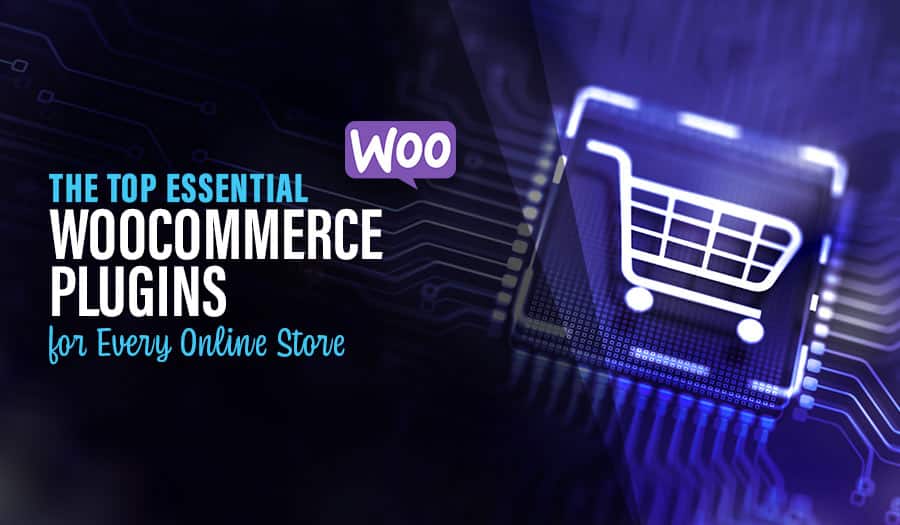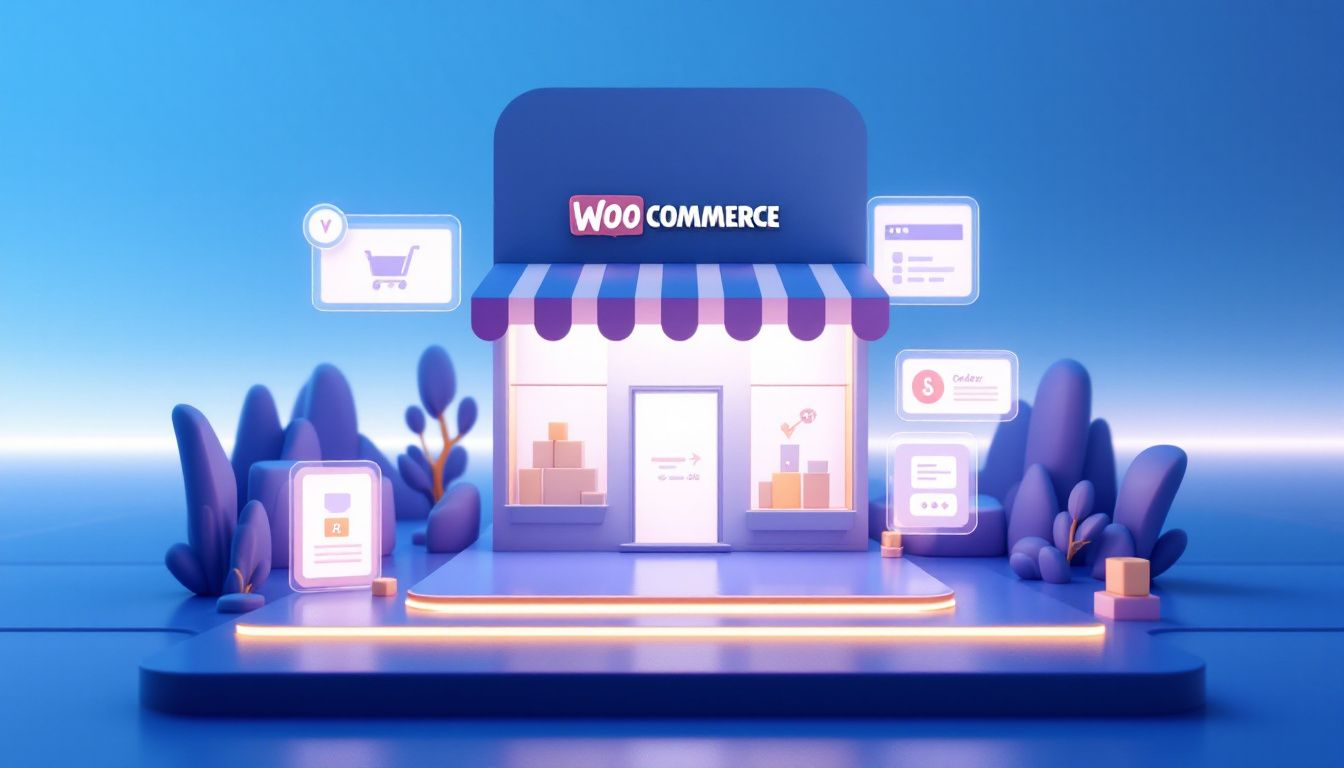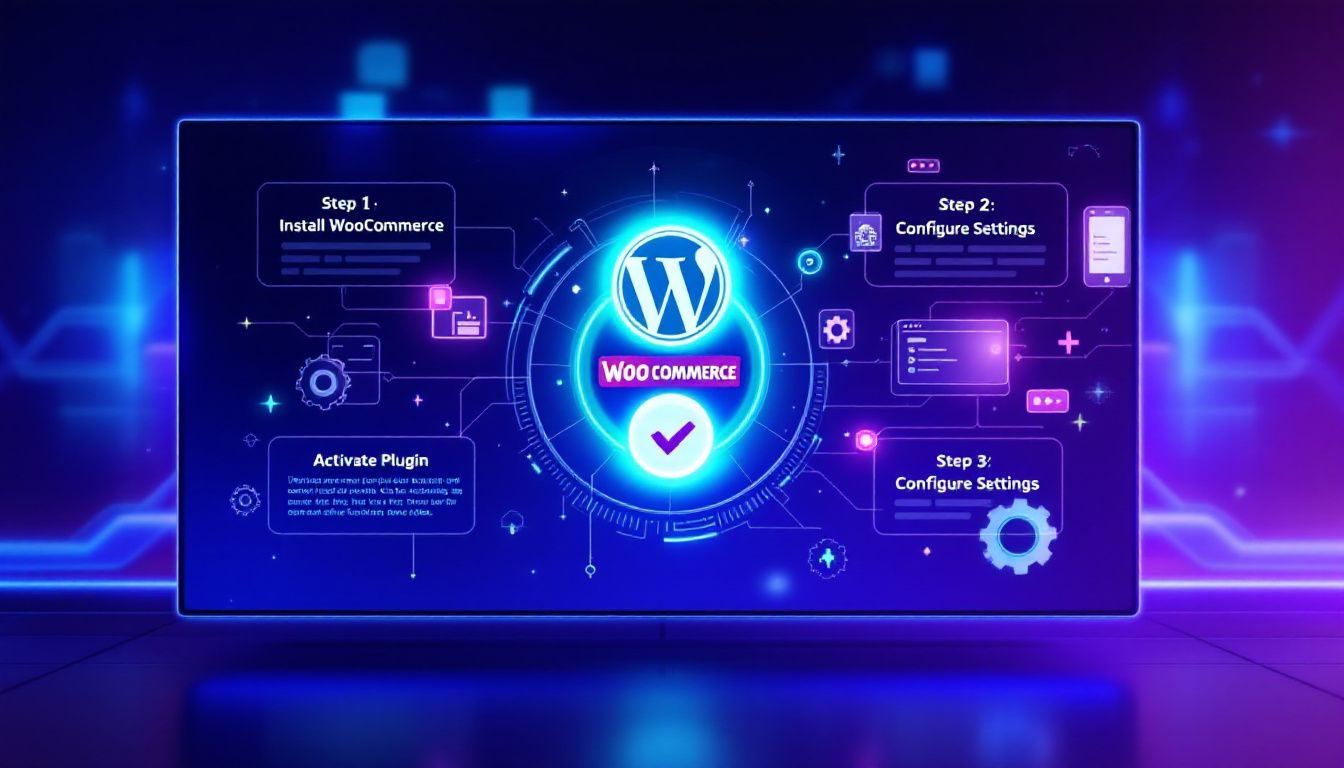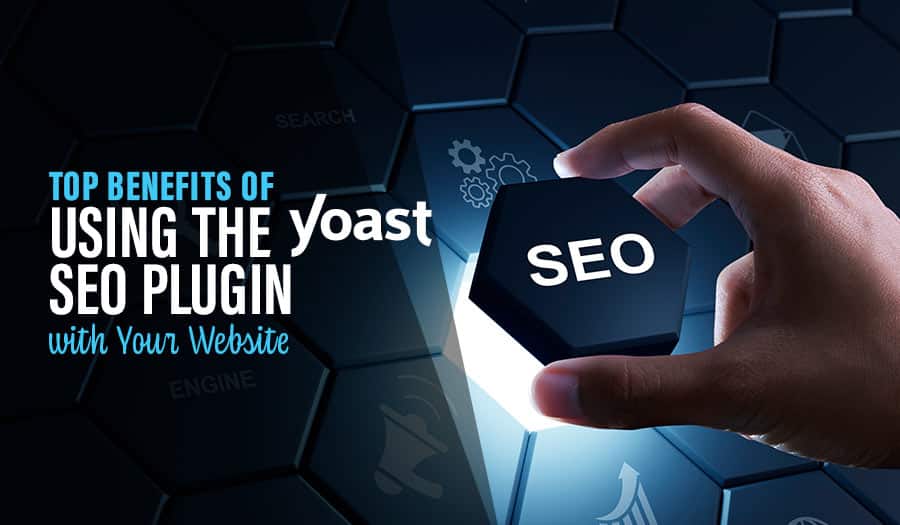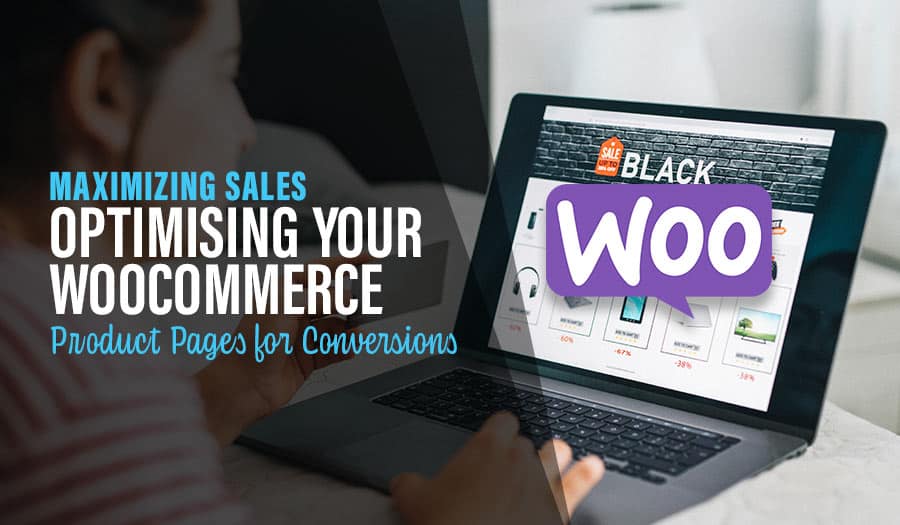WooCommerce is a powerful plugin for WordPress that lets you build and customize your online store. Whether you’re just starting out or looking to expand, WooCommerce’s flexibility and ease of use make it an ideal choice. This article will walk you through must-have WooCommerce plugins to enhance your store, from improving SEO to streamlining inventory management. Let’s explore the top Essential WooCommerce Plugins.
Essential WooCommerce Plugins: Key Takeaways
- WooCommerce is a versatile and flexible ecommerce solution, suitable for businesses of all sizes, offering extensive customization and strong community support.
- Essential WooCommerce ecommerce plugins enhance functionality in key areas such as SEO, payment gateways, shipping, and customer experience, driving sales and optimizing store operations.
- Effective store management through plugins for inventory, reporting, security, and customization is crucial for maintaining customer satisfaction and ensuring a unique online presence.
Why Choose WooCommerce?
WooCommerce is a top choice for businesses due to its ability to handle both small and large-scale operations effortlessly. WooCommerce’s flexibility suits small, medium, and enterprise-level websites, whether you’re just starting or scaling. Small businesses often integrate WooCommerce to enhance their existing WordPress sites effortlessly. With more than five million active installations, its popularity speaks volumes.
WooCommerce’s open-source nature is another compelling reason to choose it. Unlike closed platforms, WooCommerce allows for extensive customization without the need for coding skills, giving you complete control and ownership of your store data. You can tailor your WooCommerce store to meet your specific business needs, from appearance to functionalities. Additionally, WooCommerce’s compatibility with various ecommerce plugins allows for further customization and functionality enhancements.
Additionally, WooCommerce benefits from a dedicated development team and a robust community offering assistance and continuous improvements. Being a free ecommerce plugin for WordPress, it is ideal for anyone venturing into ecommerce. The platform supports various types of products, including physical items, digital goods, services, and subscriptions, offering a level of flexibility that is hard to beat.
How to Get Started with WooCommerce
Embarking on your WooCommerce journey requires a few initial steps to set the stage for a successful online store. Start by securing a domain name and selecting a reliable WordPress hosting provider that meets WooCommerce’s minimum requirements. Factors like security, speed, and support are crucial for a smooth and efficient setup process. Once your store is set up, you can further enhance its functionality with various ecommerce plugins.
With hosting in place, install WordPress as the foundation for your WooCommerce store. The following steps cover installing WordPress, activating the WooCommerce plugin, and configuring store settings using the setup wizard.
Install WordPress
Installing a WordPress site sets the foundation for your WooCommerce store. Many hosting providers offer a one-click installation option, simplifying the process. If your hosting provider supports this feature, simply log into your hosting account, find the one-click WordPress installation option, and follow the prompts to complete the setup.
Alternatively, you can manually install WordPress by downloading it from WordPress.org and uploading the files to your web server via FTP. This method involves a few more steps, such as creating a database and configuring the wp-config.php file, but it offers a deeper understanding of the setup process.
Ensuring that WordPress is correctly installed and configured is crucial for smooth WooCommerce store operations.
Install and Activate WooCommerce Plugin
After installing WordPress, the next step is to install the WooCommerce plugin. You can install WooCommerce automatically via the WordPress dashboard, use a pre-installed solution from some hosting providers, or manually download it from the WooCommerce website. The easiest and most common method is automatic installation. Log into your WordPress dashboard, go to the Plugins menu, click ‘Add New’, search for ‘WooCommerce’, and click ‘Install Now’.
After installation, click ‘Activate’ to enable the WooCommerce plugin. WooCommerce’s Setup Wizard streamlines the initial configuration by collecting essential information to set up your store. This guide covers all basics, from setting your store location to configuring payment options.
Initial Setup Wizard
The WooCommerce Setup Wizard ensures a smooth initial configuration of your store. It prompts you to input essential details such as store location, product types, primary currency, and choose a theme for your store’s appearance.
Preparing necessary information before starting the wizard can save time and help avoid potential issues later. This streamlined process ensures that your ecommerce store is set up correctly from the start, paving the way for a successful online business.
Choosing the Right WooCommerce Plugin
When it comes to selecting a WooCommerce plugin, the choices can be overwhelming. With a plethora of options available, it’s crucial to choose the right plugin that aligns with your online store’s needs. The right WooCommerce plugin can significantly enhance your store’s functionality, improve user experience, and boost sales. Here’s what you need to consider when making your selection.
What to Consider When Selecting a WooCommerce Plugin
Choosing the right WooCommerce plugin involves evaluating several critical factors:
- Compatibility: Ensure the plugin is compatible with your current WordPress version and WooCommerce version. Incompatibility can lead to functionality issues and even site crashes.
- Features: Identify the features you need for your online store. Whether it’s advanced payment gateways, diverse shipping options, or product variations, make sure the plugin offers the functionalities that meet your business requirements.
- Performance: Opt for a plugin that is optimized for performance. A plugin that slows down your website can negatively impact user experience and SEO rankings.
- Support: Look for plugins that come with dedicated support. Excellent customer service can be a lifesaver when you encounter issues or need assistance with setup and customization.
- Reviews: Reading reviews from other users can provide valuable insights into the plugin’s reliability and effectiveness. User feedback can help you gauge the plugin’s performance and support quality.
By considering these factors, you can select a WooCommerce plugin that enhances your online store’s capabilities and ensures a smooth shopping experience for your customers.
Must-Have WooCommerce Plugins
Utilizing essential ecommerce plugins enhances your WooCommerce store’s functionality. These plugins extend WooCommerce’s capabilities, enabling you to manage inventory, market products, run promotions, and offer discounts effectively.
Hundreds of free and paid extensions allow you to tailor your ecommerce store to meet specific business needs and improve overall operations. Here are some must-have plugins for SEO, payment gateways, and shipping and fulfillment.
WooCommerce SEO Plugins
SEO is essential for any online store’s success, and dedicated ecommerce plugins can significantly enhance your store’s search engine visibility. Though WooCommerce provides basic SEO features, dedicated SEO plugins can significantly enhance your store’s search engine visibility.
Plugins like Yoast SEO are recommended for optimizing product pages and improving search rankings, ensuring your WooCommerce store stands out. These plugins help you fine-tune meta descriptions, keywords, and other SEO elements to attract more organic traffic to your site.
Payment Gateway Plugins
Multiple ecommerce plugins for payment gateways enhance user convenience and increase conversion rates in your WooCommerce store. The WooCommerce Fast Cart Plugin supports various payment gateways like PayPal, Stripe, Amazon, and Braintree, providing flexible payment options during checkout. This flexibility makes the checkout process smoother and more appealing, reducing cart abandonment and boosting sales.
Besides online payment options, WooCommerce supports offline payment methods, offering customers even more flexibility. Integrating multiple payment gateways caters to a broader audience and improves the overall shopping experience. This enhances customer satisfaction and increases repeat purchases, contributing to long-term success.
Shipping and Fulfillment Plugins
Efficient shipping and fulfillment are crucial for customer satisfaction and timely deliveries, and ecommerce plugins for shipping can automate logistics and provide real-time updates. WooCommerce shipping plugins automate logistics, provide real-time shipping cost updates, and manage shipping zones. Set up shipping zones by navigating to WooCommerce > Settings > Customize, tailoring shipping options based on customer locations. This customization ensures customers receive accurate shipping information, enhancing their shopping experience.
These plugins handle various shipping methods and carriers, allowing you to offer multiple shipping options. This flexibility improves customer satisfaction and helps manage shipping costs effectively.
Leveraging shipping and fulfillment plugins streamlines logistics operations, reduces errors, and ensures prompt and accurate order delivery.
Enhancing User Experience
Enhancing user experience is crucial for retaining customers and boosting sales, and ecommerce plugins can significantly improve features and customer satisfaction. These plugins optimize the checkout process, enhance product images, and gather customer reviews, creating a seamless shopping experience.
Here are key plugins for cart and checkout optimization, product image enhancement, and customer reviews.
Cart and Checkout Optimization Plugins
Optimizing cart and checkout pages processes reduces cart abandonment and increases conversions. The WooCommerce Fast Cart Plugin offers an instant popup cart and checkout, simplifying the ordering process. Features like instant on-page checkout let customers complete orders without leaving the current page, making the process more convenient and efficient.
Integrating multiple payment options makes the checkout process more flexible and appealing. Google address auto-complete technology saves time during checkout by automatically filling in address details.
Streamlining the checkout page process and offering advanced features significantly enhances user experience, leading to higher conversion rates and increased customer satisfaction.
Product Image and Gallery Plugins
High-quality product images attract and retain customers. WooCommerce lets you add multiple images to a product gallery, enhancing visual appeal. To set a product image, select the item, go to Products > Products > Images, and click Set product image.
Dedicated plugins for product images and galleries provide features like zoom, sliders, and lightboxes, making product pages more interactive and engaging, with dedicated support.
Customer Review and Feedback Plugins
Customer reviews are crucial for building credibility and influencing potential buyers. Encouraging customer reviews through dedicated plugins enhances your store’s reputation and provides valuable feedback. These plugins often include review reminders, ratings, and the ability to prominently display reviews on product pages.
Leveraging customer reviews builds trust with new customers and improves your store’s overall performance.
Managing Your WooCommerce Store
Effective WooCommerce store management ensures smooth operations and maintains customer satisfaction, and ecommerce plugins can simplify tasks such as inventory management, reporting, and security.
Though WooCommerce is powerful, managing an ecommerce store can present challenges like scaling issues, slow frontend performance, and potential conflicts after updates. Here are essential plugins for managing inventory, generating insightful reports, and safeguarding your store.
Inventory Management Plugins
Automating inventory management improves efficiency and accuracy in your WooCommerce store. Certain plugins enable automatic stock replenishment, ensuring optimal inventory levels and avoiding stockouts. Plugins supporting bulk editing of product and variation stock levels save considerable time and effort. These tools enable quick and efficient updates of product details and stock levels, essential for managing many SKUs.
Incorporating automated tools into your inventory process enhances operational efficiency and reduces the risk of human error. This leads to better stock control, improved customer satisfaction, and increased sales. Leveraging the right inventory management plugins ensures your WooCommerce store runs smoothly and efficiently.
Reporting and Analytics Plugins
Detailed reporting and analytics are crucial for understanding your store’s performance and making informed decisions. WooCommerce offers plugins providing comprehensive reports on order history, revenue, shipping costs, and stock levels. These insights help identify trends, monitor sales performance, and make data-driven decisions to optimize operations. You can also analyze data for specific product categories, providing targeted insights for marketing and sales strategies.
Plugins for creating custom order statuses enhance order flow management and streamline operations. Customizing order statuses allows better tracking of order progress and ensures timely fulfillment. Leveraging reporting and analytics plugins allows you to gain deeper insights into your business performance, ultimately helping you achieve your growth objectives.
Security Plugins
Maintaining strong security measures is essential for protecting your ecommerce site and ensuring customer trust. While WooCommerce provides adequate transactional security, additional precautions are necessary to safeguard your store against threats. Several security plugins offer real-time scanning for vulnerabilities, helping you detect and address potential issues before they become critical. These plugins often include firewall features to protect against common online threats, such as malware and hacking attempts.
Implementing robust security measures not only protects your store but also instills confidence in your customers, encouraging repeat business. By utilizing security plugins, you can maintain a safe and secure shopping environment, ensuring your customers’ financial information remains protected.
Performance Optimization Plugins
Performance optimization is crucial for maintaining a fast and efficient WooCommerce store. Slow load times can lead to higher bounce rates and lower conversion rates. Here are some popular performance optimization plugins that can help keep your WooCommerce store running smoothly:
- WooCommerce Booster: This plugin optimizes WooCommerce performance by reducing database queries and improving caching. It helps in speeding up your site and enhancing overall performance.
- WP Rocket: A powerful caching plugin that improves page load times and reduces server load. WP Rocket is known for its user-friendly interface and effective performance enhancements.
- Autoptimize: This plugin optimizes images, CSS, and JavaScript files, significantly improving page load times. Autoptimize helps in reducing the size of your web pages, making them load faster.
By integrating these performance optimization plugins, you can ensure your WooCommerce store offers a fast and seamless shopping experience, which is crucial for retaining customers and boosting sales.
Customizing Your WooCommerce Store
Customization is key to creating a unique and branded experience for your online store, and ecommerce plugins can help you achieve this. WooCommerce offers a variety of plugins that help you customize both the look and capabilities of your store. From theme customization to advanced custom fields, these tools allow you to tailor your store to meet your specific business needs and preferences.
The following sections will explore WordPress plugin for theme customization, page building, and adding advanced custom fields.
Theme Customization Plugins
Creating a unique and branded look for your online store is essential for standing out in the competitive ecommerce market. Theme customization plugins like WooCommerce Fast Cart offer various options for customizing your store’s appearance, including selecting the cart type, colors, and position. These plugins are designed to work seamlessly with any WordPress theme, ensuring a consistent and responsive design across all devices.
Customizing your WooCommerce theme allows you to create a cohesive brand identity and provide a visually appealing shopping experience for your customers. By leveraging theme customization plugins, you can enhance your store’s aesthetic and functionality, making it more attractive and user-friendly.
Page Builder Plugins
Page builder plugins enable you to create custom layouts for your WooCommerce pages without any coding skills. These tools, such as Woolentor, offer drag-and-drop functionality, making it accessible for users with no programming background. Woolentor, for example, provides over 90 templates and more than 50 widgets specifically designed for WooCommerce integration.
By using page builder plugins, you can customize your product pages, shop page, checkout pages, and other key sections of your store to match your unique vision and brand identity.
Advanced Custom Fields Plugins
Advanced Custom Fields plugins in WooCommerce allow store owners to add extra fields to products, enabling greater customization and functionality. You can utilize the Attributes tab found in the Product data section. This allows you to provide detailed product information that goes beyond just the basic description.
This added level of customization helps you provide more comprehensive product details, enhancing the shopping experience for your customers and making your store more competitive with custom solutions.
WooCommerce Integration and Compatibility
WooCommerce’s flexibility extends beyond its core functionalities, allowing seamless integration with a variety of third-party services and plugins. These integrations can enhance your store’s capabilities, streamline operations, and improve customer experience. Let’s explore some of the key third-party integrations and their benefits.
Third-Party Integrations
Integrating WooCommerce with third-party services can significantly enhance your store’s functionality and efficiency. Here are some essential integrations to consider:
- Payment Gateways: WooCommerce supports a wide range of payment gateways, including PayPal, Stripe, and Amazon Pay. These integrations provide your customers with multiple payment options, enhancing convenience and increasing conversion rates.
- Shipping Providers: Integrate WooCommerce with shipping providers like USPS, UPS, and FedEx to automate shipping calculations and provide real-time shipping cost updates. This ensures accurate shipping information and improves customer satisfaction.
- Marketing Automation Tools: Tools like Mailchimp and Constant Contact can be integrated with WooCommerce to automate your marketing efforts. These integrations allow you to manage email campaigns, segment your audience, and track marketing performance, helping you engage with customers more effectively.
- Accounting Software: Integrate WooCommerce with accounting software such as QuickBooks and Xero to streamline your financial management. These integrations automate the synchronization of sales data, reducing manual entry and minimizing errors.
By leveraging these third-party integrations, you can streamline your workflow, enhance customer experience, and ultimately boost sales. Integrating WooCommerce with the right tools ensures your ecommerce store operates efficiently and meets the evolving needs of your business.
In conclusion, choosing the right WooCommerce plugin and integrating it with third-party services are crucial steps in building a successful online store. By carefully selecting plugins that enhance performance, provide essential features, and offer robust support, you can create a seamless and efficient shopping experience for your customers.
Marketing and Sales Boosters
Boosting sales and expanding your market share are critical goals for any ecommerce store, and ecommerce plugins can help you achieve these objectives. WooCommerce offers a range of plugins designed to enhance your marketing efforts and drive sales. From email marketing and social media integration to discount and coupon plugins, these tools help you reach more customers, increase conversions, and stay ahead of the competition.
The following sections will explore some of the key plugins that can help you achieve these objectives.
Email Marketing Plugins
Email marketing is a powerful tool for engaging with your customers and driving repeat sales. Popular email marketing tools compatible with WooCommerce include Mailchimp, Klaviyo, and Sendinblue. Mailchimp for WooCommerce, for example, enables seamless management of email campaigns and targeted marketing strategies. These plugins allow you to segment your audience, create personalized email campaigns, and track the performance of your marketing efforts.
Additionally, plugins like AutomateWoo enable the automation of follow-up emails based on customer behavior. This means you can set up automated workflows to send abandoned cart reminders, post-purchase follow-ups, and promotional offers, helping you stay connected with your customers and encourage repeat purchases.
By leveraging email marketing plugins, you can build stronger customer relationships and boost sales.
Social Media Integration Plugins
Integrating social media into your WooCommerce store can enhance customer engagement and expand your reach. Plugins can facilitate social login options, making it easier for customers to access your store using their social media accounts. Additionally, sharing buttons can be added to product pages, encouraging customers to promote your products on their personal social networks.
These plugins can also automate the sharing of products on platforms like Facebook, Instagram, and Twitter, helping you reach a broader audience and drive more traffic to your store.
Discount and Coupon Plugins
Discounts and coupons are effective tools for incentivizing purchases and increasing sales. WooCommerce offers various plugins that allow you to create and customize coupons, including setting names, codes, values, expiry dates, restrictions, and limits. These plugins enable you to tailor discounts to specific products, such as new items or seasonal selections, providing flexible promotional strategies.
The WooCommerce Fast Cart Plugin, for instance, offers exclusive discounts in collaboration with over 50 WordPress companies. By offering discounts and promo codes, you can entice customers to buy more, enhancing customer loyalty and driving overall sales.
Utilizing discount and coupon plugins is essential for creating effective promotions that boost sales and customer satisfaction.
Summary
WooCommerce stands out as a powerful and flexible ecommerce platform that caters to businesses of all sizes. From its ease of integration with WordPress to its extensive customization options and robust community support, WooCommerce offers a comprehensive solution for building and managing an online store. By leveraging essential plugins for SEO, payment gateways, shipping, user experience, inventory management, reporting, security, customization, and marketing, you can create a highly functional and successful ecommerce store.
In conclusion, WooCommerce provides everything you need to thrive in the competitive online market. By carefully selecting and implementing the right plugins, you can enhance your store’s functionality, improve the customer experience, and drive sales. Start your WooCommerce journey today and unlock the full potential of your ecommerce business.
Essential WooCommerce Plugins: Frequently Asked Questions
What are the initial steps to start with WooCommerce?
To start with WooCommerce, secure a domain name and choose a reliable WordPress hosting provider. Then, install WordPress, activate the WooCommerce plugin, and follow the initial setup wizard. This will set a solid foundation for your online store.
Why should I choose WooCommerce over other ecommerce platforms?
Choosing WooCommerce offers flexibility, scalability, and extensive customization options, making it an ideal choice for businesses looking for a WordPress integration with strong community support. Its ability to handle various product types enhances its appeal for diverse ecommerce needs.
How can I improve the SEO of my WooCommerce store?
To improve the SEO of your WooCommerce store, utilize SEO plugins such as Yoast SEO to optimize product pages, meta descriptions, and keywords for better search engine visibility. This is essential for attracting more organic traffic to your store.
What plugins are essential for managing my WooCommerce store?
Essential plugins for managing your WooCommerce store include inventory management, reporting and analytics, and security tools, as they streamline operations, deliver important insights, and safeguard your store.
How can I boost sales in my WooCommerce store?
To effectively boost sales in your WooCommerce store, leverage marketing and sales booster plugins like email marketing tools, social media integration, and discount coupon features. This approach will help you reach more customers and improve conversion rates.
Take your business to the next level with a Pixel Fish Website.
Check out some of our latest Website Design projects.
Further Information
Why you should use Elementor for your new WordPress Website
Social Media Campaign
How to Create the Perfect WooCommerce Website
Harness the Power of WooCommerce for Your Small Business Website Design
Maximizing Sales: Expert Tips for Optimising Your WooCommerce Product Pages for Conversions
WooCommerce for Ecommerce: Why your business needs to consider it
How Artificial Intelligence is Revolutionising Business Operations
Understanding the Purpose of your Website: Key Elements for Success
